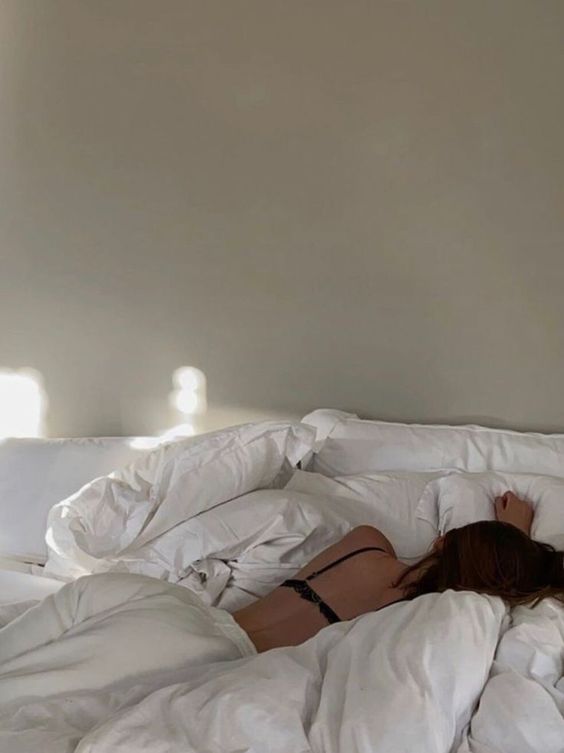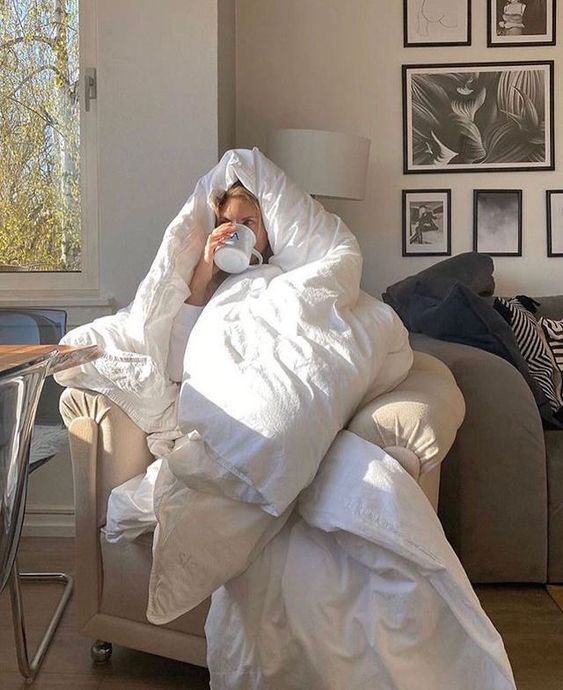
The winter season is ideal for slowing down. Just as nature calms down and goes into hibernation, it's an opportunity for us to slow down and allow ourselves to rest. When else to recharge for the year ahead than in the winter. Your body and soul will thank you.
How to set your own hibernation regime?
Take time for yourself. Add moments of relaxation and rest to your daily schedule. Allow yourself time alone, if at least a little is possible within your family. This is important for psychohygiene and recharging your energy to cope with daily obstacles. With a calm mind, any problems are solved more effectively. Embrace hygge. Create a cosy atmosphere in your home that makes you feel at home and comfortable. Walks in the fresh air. Even when it's cold outside, walking in the fresh air can be refreshing. Wrap up warm and enjoy the beauty of the winter landscape, which will take you away from your worries and bring you back to the present moment. Yoga or meditation exercises. They help release tension and improve the overall state of body and mind. Stretch your whole body, focus on your breath, play the right soothing music to go with it and enjoy your time.

Eat your way to happiness
Seasonal food is part of the winter season. Prefer warm food from morning to night to warm your body from the inside out. For breakfast, make porridge and add superfoods to boost your immunity. For example, spirulina, young barley, chia seeds or macca. Herbal teas will complement your drinking regime, and those with rosehip or sea buckthorn contain a rich supply of vitamin C. Cook warm vegetable soups, or honest broth. Broth is medicine, if you use free range farm meat for it, it will contain a range of vitamins, proteins and minerals. Broth also relieves colds and helps reduce inflammation in the body. Instead of a cold salad, roast or bake vegetables. Reach for carrots, celery, parsley, beetroot, kale, kohlrabi, sweet potatoes, etc. Sprinkle them generously with herbs, seeds and don't forget good quality vegetable oil. Hemp, for example, contains an optimal ratio of omega-3 and omega-6 fatty acids, antioxidants, vitamin C and E and helps reduce inflammation and pain.

Time to Relax
Find activities that slow you down. It could be reading, a massage, a sauna, a hot bath, or creating something that will keep you busy in a different way and allow you to turn your mind off. The only rule is that you have to enjoy it. Relaxation is important in our lives. Whether it's physical or mental. If you have a mentally demanding job and need to finally switch off, keep your hands busy. If, on the other hand, your day is physically demanding, schedule time to rest. Compensate for physical activity with, for example, yoga, stretching, master physio exercises, put your feet up and relieve heavy feet. Relax stiff muscles during a bath and massage them with a massage brush.

Tips for a good night's sleep
Sleep is an integral part of our bio rhythm. It is a time when our body relaxes, regenerates and heals. Sleep and its quality not only affect our metabolism, but also the condition of our skin. In winter we naturally tend to go to bed earlier, we are tired earlier. Listen to your body and adapt your sleeping pattern to it. If you have trouble falling asleep or wake up tired in the morning, try applying the following tips:
Keep a regular sleep schedule. Try to go to bed and wake up at the same time every day, even on weekends. This helps maintain the consistency of your biological clock system.
Optimize your sleep environment. Use curtains that effectively block light, and consider using an eye mask if you have problems with too much light preventing you from falling asleep.
Room temperature is very important and affects the quality of sleep. A temperature between 21 and 23 degrees is recommended. If you are not used to such a low temperature, try to lower it gradually. After a few weeks, your thermoregulation will get used to it and it will be natural for you to have a lower temperature in your bedroom.
Ventilate before going to sleep. The fresh air, along with the lower room temperature, will make it easier to fall asleep and get a fuller night's sleep. You'll feel more rested in the morning.
Limit exposure to light before bedtime. Reduce light exposure at least an hour before bedtime. Exposure to white and blue light in the evening disrupts the sleep cycle because it reduces the production of melatonin, a hormone essential for sleep. Scrolling on the phone, watching the computer or television are not appropriate activities before falling asleep. If you must be in front of a screen or monitor in the evening, set your devices to night mode, which activates a warm light. An even better option is to wear red goggles. Red light prepares our bodies for sleep.
Avoid heavy meals and stimulants in the evening. Limit caffeine and heavy meals in the evening as this can affect the quality of your sleep.Avoid sweet, heavy and fatty foods in the evening. Avoid caffeine, black and green tea and any other drinks that contain caffeine in the evening.
Regular physical activity. Include regular physical activity in your daily schedule, but avoid vigorous exercise just before bedtime, which, on the contrary, pumps up your circulation and makes you groggy. Relaxing yoga or stretching is much more appropriate.
The importance of vitamin D. Try to spend time outdoors during daylight hours to promote a natural sleep cycle. Supplement vitamin D, which we are deficient in our latitudes. Vitamin D has an effect on melatonin production and also affects serotonin levels, which can interfere with our wellbeing and calm. It is important for the proper functioning of our nervous system, influencing our immune system and coping with stressful situations.
